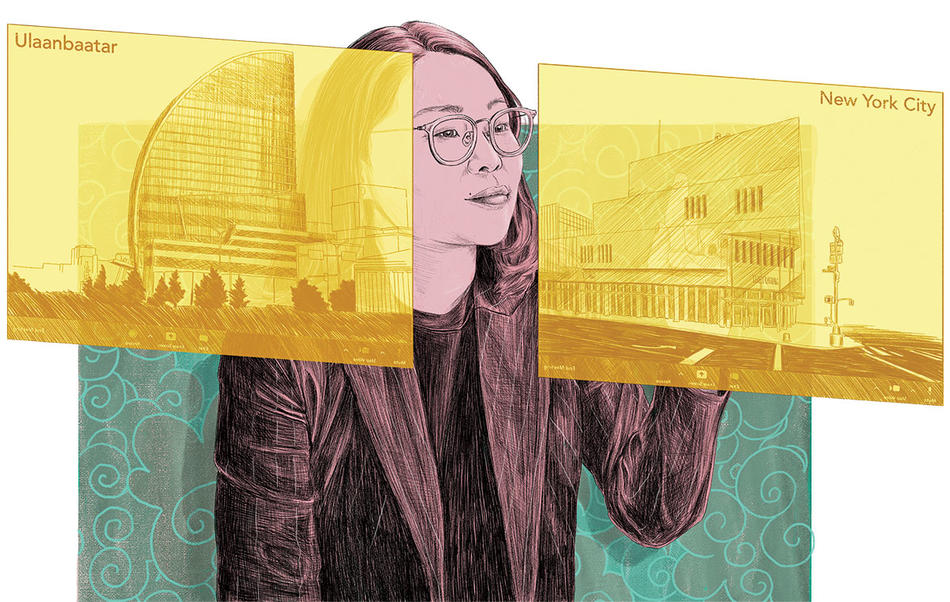The Obama Foundation Scholars Program at Columbia, a collaboration with the nonprofit created by former president Barack Obama ’83CC, invites rising leaders from around the world to participate in a year-long residency at the University. This year’s cohort is currently studying remotely. We caught up with scholar Maralmaa Munkh-Achit in Mongolia.
"The Scholars Program is designed to help me build the policy, development, and social-advocacy skills that support the work I do in Mongolia. The curriculum is very diverse. Right now, I’m auditing two classes: International Nonprofit Management and Communications for Corporations and Nonprofits. I’m also in Zoom workshops with prominent leaders and experts.
I’m currently on sabbatical from my job as the executive director of the Zorig Foundation, a nonprofit located in the capital, Ulaanbaatar. We focus on youth and education, good governance, voter registration, and community development. One of my passion projects is the Sustainable Employment for Youth Program. In Mongolia it can take almost three years for a university graduate to transition to full-time employment. We are trying to close that gap by teaching essentials like résumé writing, communication skills, and networking.
Due to COVID-19, I wasn’t able to travel to the US, so I spent the first semester at home. There’s a twelve-hour time difference, so sometimes I find myself in meetings in the middle of the night. While I’m still not used to the virtual programming and the hectic schedule, I already feel connected to the other scholars. I love hearing about the work they’re doing in their communities, from educating the next generation of journalists in India to combating climate change in Brazil. My fellow scholars are truly inspiring. We organize informal meetings outside the official programming so we can share our stories and expertise, but I just wish we could all be on campus together. The situation can be frustrating, but I try to focus on my goals. I remind myself that Mongolia is a country of only three million people and that one person can make a significant difference here."



